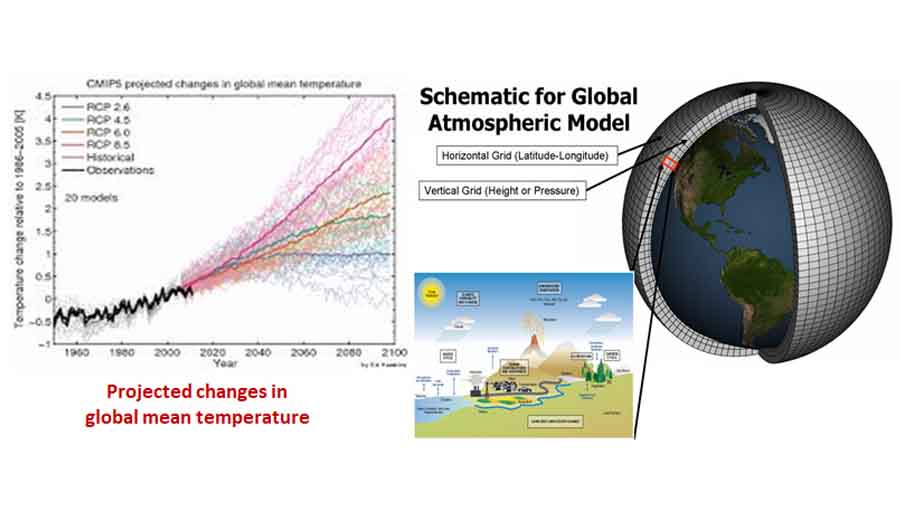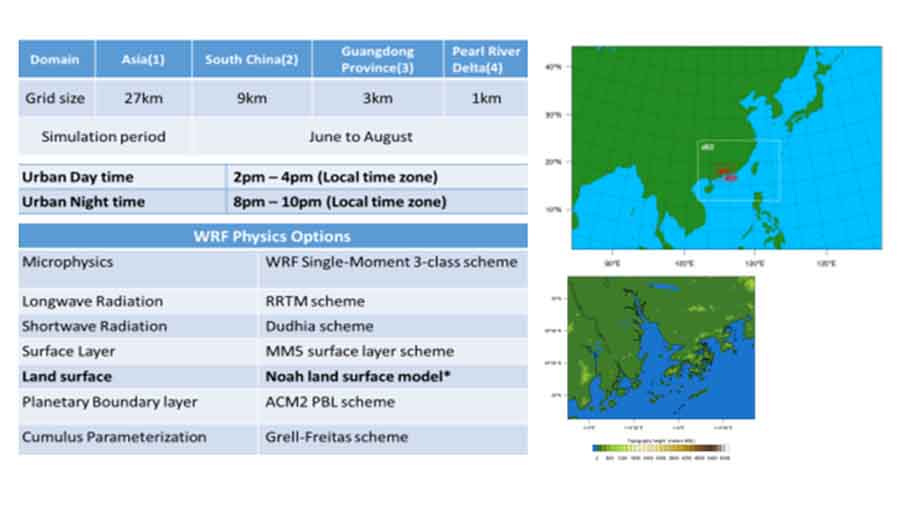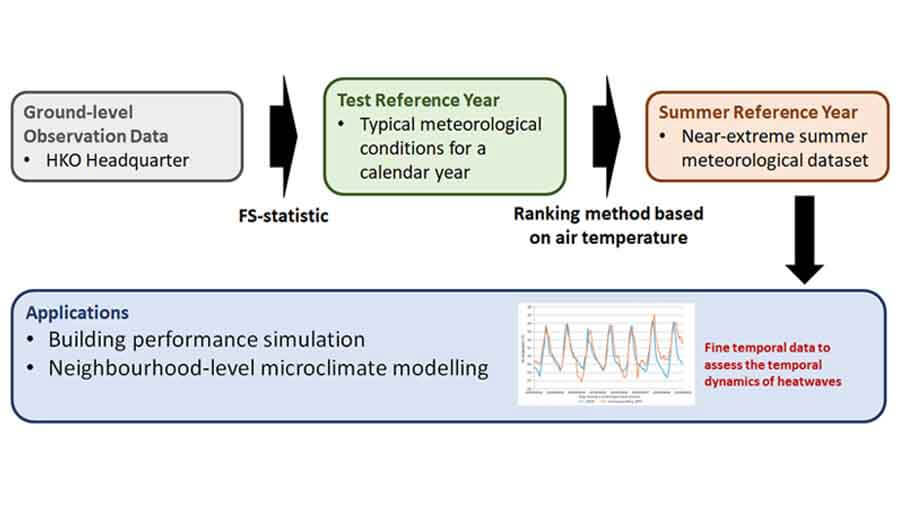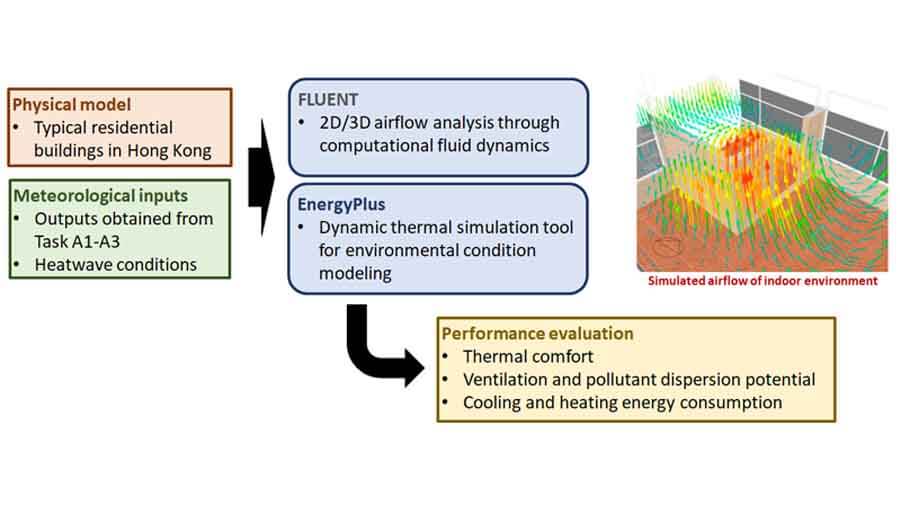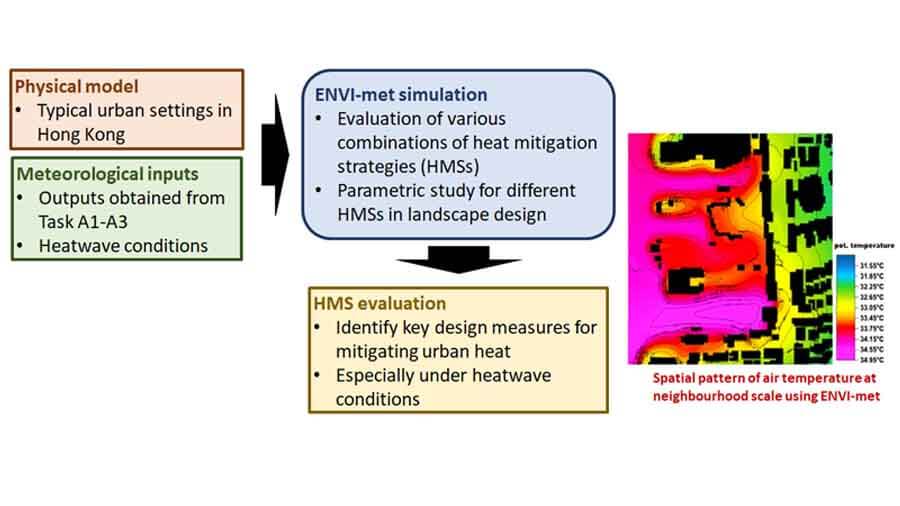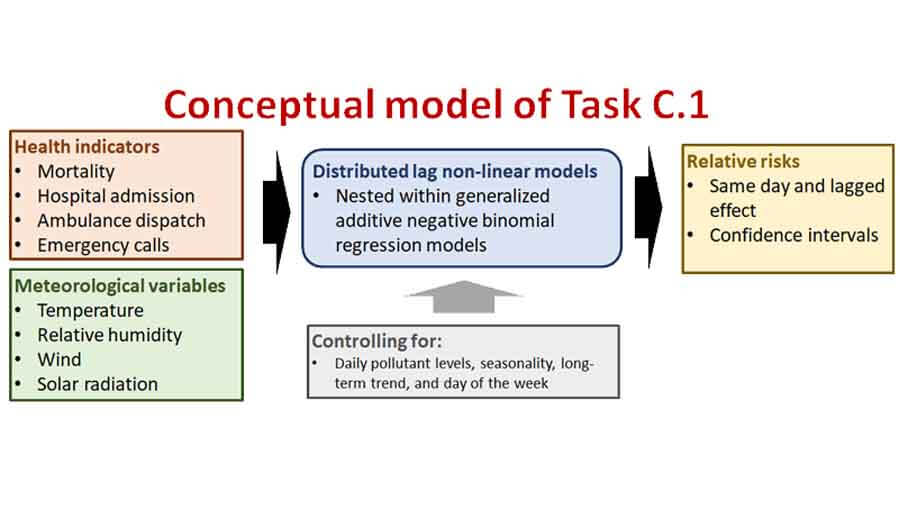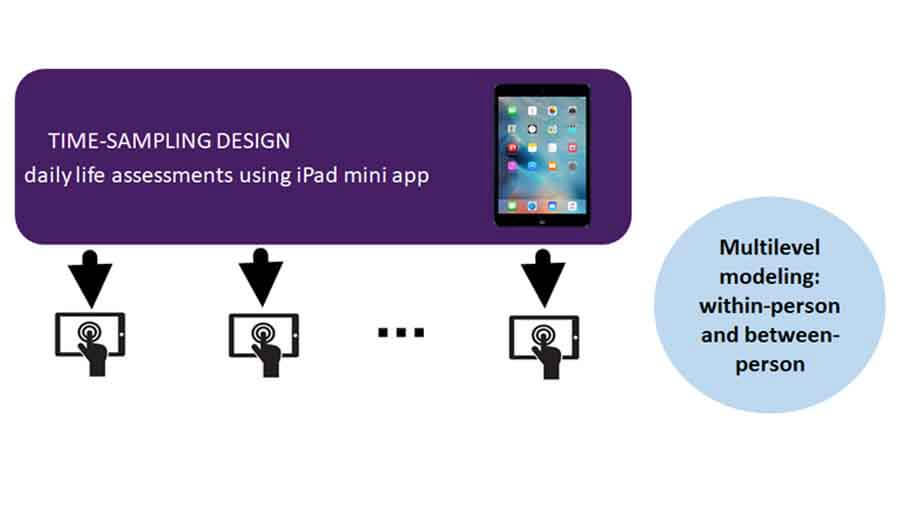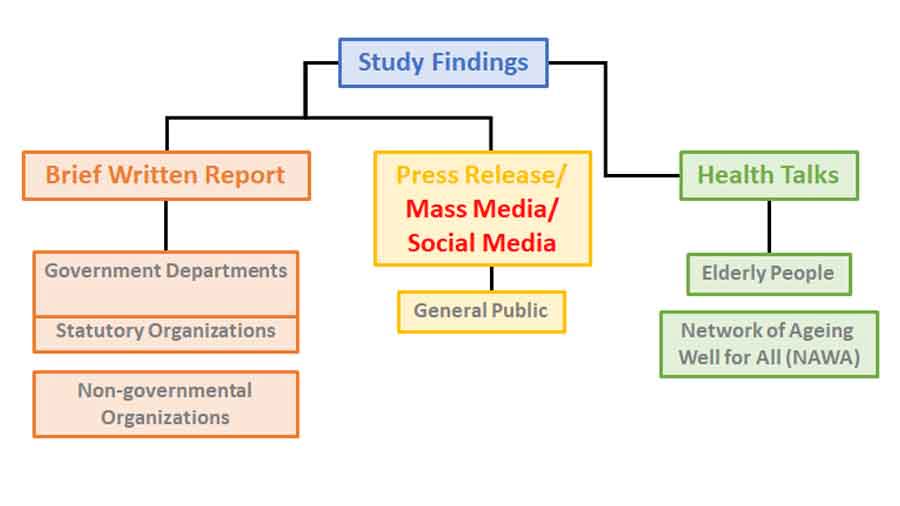Task A: Climate Data
Future temperature projection under extreme weather conditions
Global Climate Models are used for impact assessment of climate change. There is a mismatch between the spatial scales of outputs and regional impacts. This study aims to bridge the global and regional climate models and building-level application.
Hourly data of extreme weather under future climate change
The resultant data from GCM and WRF outputs will be used to develop meteorological data for fine temporal scale for the assessment of building performance and indoor thermal comfort under extreme weather conditions.
Dataset is now available for free download!
View Details and Download